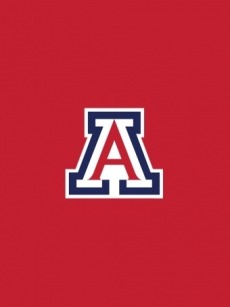
Jake Kaiser developed his project and financial management skills supporting the renovation of a luxury vacation rental property previously destroyed by a natural disaster.
Why did you choose this internship?
I chose this internship because I had already worked an internship for a commercial property leasing company and wanted experience more related to property development. This project was perfect for me because it allowed me to work with the financial side and construction process of real estate development. I was also able to gain a better understanding of risk and return on investment. I would be able to see first-hand how investors consider what developments are worth investing in and how the construction process can change the financials in real time.
What kind of work did you do throughout your internship experience?
I performed many different roles in my internship from tracking expenditures to doing manual labor on site. My largest responsibility on the project was to go through all of the expenses to date and identify overages from the original bid. Once that was done, I was able to work on forecasting the remaining expenditures against the bid to make project adjustments to minimize the overspend. I also tracked the project timeline for efficiency in a similar manner, by identifying areas of the job that had taken longer than expected to complete. Working with the site manager, I had a better understanding of the anticipated completion date. Then I worked with the property manager to secure rentals for the upcoming season knowing that we would be ready for business. By doing this, I projected cash flow and income for 2026.
What skills did you practice or learn in this internship?
The transferable skills that I learned in my internship were very diverse. The main skill that I learned was finance and cash flow management. The owner allowed me to access all of the financial data. I forecasted future income and operating expenses to have a better understanding of return on investment. Working with the investor, who works in finance, was extremely educational and gave me an understanding that enhanced what I learned in real estate finance class. The second skill I developed was negotiating. I worked with my supervisor, who has a background in sales and negotiation, to negotiate a very large cost savings on the project.
How was the internship related to your Applied Humanities degree?
All areas of my Applied Humanities degree were useful, especially my emphasis in Business Administration and a minor in Real Estate Development. I utilized my business classes such as finance and accounting. I applied knowledge that I had learned in my Responsible Real Estate Development class as well as my Real Estate Finance class. In addition, the things that I learned about myself in the Applied Humanities Capstone class helped me work with others on the project in a more productive and meaningful way. I really enjoyed being able to apply what I have learned in the class room to a real construction project.
If you worked on a big project, describe it.
My entire internship was basically a large project in itself: rebuilding a luxury vacation rental property that was destroyed in a natural disaster. This involved working with the build site manager, the builder’s accounting department and the rental property manager. When I started, the project had already been in progress for almost three years and was over on both timeline and budget. My job was to dig through the financials and evaluate both past and forecasted spending and identify areas for cuts. I also managed the timeline to assure that the property would be ready and rented for the 2026 rental season.
What was the most significant contribution you made?
The biggest impact I had on the project was offsetting a large, unexpected expenditure by negotiating a lower fee from the builder and several vendors. I was able to use some of the skills I learned in my Applied Humanities classes to form a working relationship with all of the parties involved. The investors did not have to make as many cuts to offset the unexpected expense because of the rapport I built with the other parties involved.
What advice do you have for other students as they search for an internship?
My advice for anyone looking for an internship is to consider smaller companies because they might allow you to work in a larger scope and learn more about different aspects of the company. Smaller companies might not have structured roles and responsibilities allowing them to be more flexible. You can gain more insight into the business if you are able to work in multiple departments and roles. While the name recognition of a larger company can look good on your resume, a smaller company can provide you with more in-depth experience.

